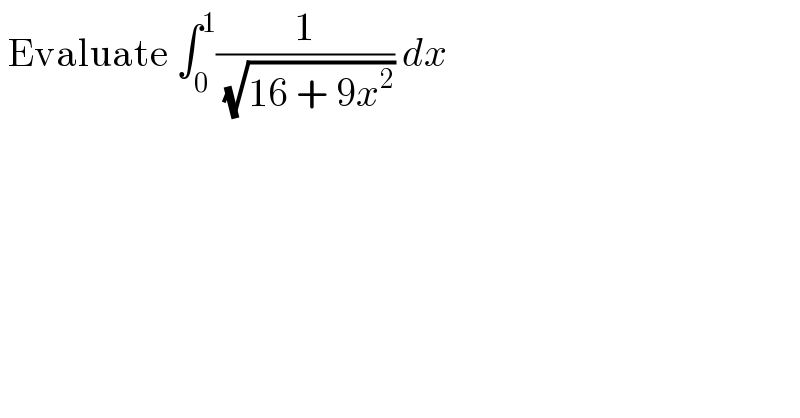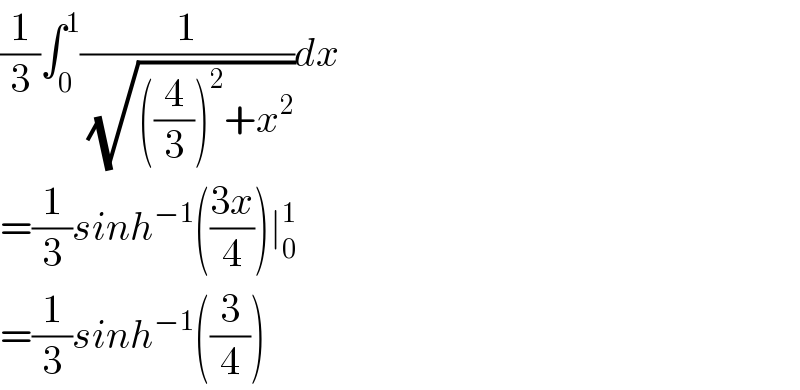
Question and Answers Forum
Question Number 97683 by Don08q last updated on 09/Jun/20

Commented by bemath last updated on 09/Jun/20
![set 3x = 4tan z ⇒3dx=4sec^2 zdz I=∫ (((4/3)sec^2 z dz)/(√(16+16tan^2 z))) I= (1/3)∫ sec z dz = (1/3) ln∣sec z+tan z∣ I= (1/3)[ln∣((√(16+9x^2 ))/4)+((3x)/4)∣]_0 ^1 =(1/3)ln(2)](Q97689.png)
Commented by Tony Lin last updated on 09/Jun/20

Commented by john santu last updated on 09/Jun/20

Answered by smridha last updated on 10/Jun/20
![(1/3)∫_0 ^1 (dx/( (√(((4/3))^2 +x^2 ))))=(1/3) (ln[x+(√(((4/3))^2 +x^2 ))])_0 ^1 =(1/3)ln2](Q97691.png)
Answered by Rio Michael last updated on 09/Jun/20
![RecaLl ∫(1/(√(x^2 +a^2 ))) dx = ln(x + (√(x^2 + a^2 ))) + c ∫_0 ^1 (1/(√(16+ 9x^2 ))) dx = (1/3)∫_0 ^1 (1/( (√(x^2 + ((4/3))^2 ))))dx = (1/3) [ln(x + (√(x^2 +((4/3))^2 )))]_0 ^1 = (1/3)[ln((8/5))−ln((4/3))] = (1/3) ln 2](Q97693.png)
Commented by peter frank last updated on 09/Jun/20

Answered by mathmax by abdo last updated on 09/Jun/20
![I =∫_0 ^1 (dx/(√(16+9x^2 ))) ⇒I =(1/4)∫_0 ^1 (dx/(√(1+(9/(16))x^2 ))) changement (3/4)x=t give I =(1/4)× ∫_0 ^(3/4) (1/(√(1+t^2 )))×(4/3) dt =(1/3)[ln(t+(√(1+t^2 ))]_0 ^(3/4) =(1/3){ln((3/4)+(√(1+(9/(16))))) =(1/3)ln((3/4) +(5/4)) =(1/3)ln(2)](Q97704.png)
